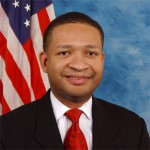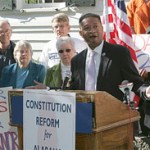 Political novels are a dying breed, and the death has been a long, slow one. But into the void steps Jeff Greenfield with a smart, well conceived set of political short stories called “Then Everything Changed“. In less than 400 pages, Greenfield, one of Robert Kennedy’s best speechwriters and an accomplished journalist, pulls off what is arguably the best political fiction in the last generation: it will and should endure for its skill and its contribution to our imagination. The book is built on three novellas: the premise of each is that a particular historical fact happened a fraction of an inch differently, and that the political world was realigned accordingly. The first supposes that a would be assassin lurking outside John Kennedy’s Florida getaway in December 1960 carried out his plot to steer a car loaded with explosives into the President elect’s path; and that the tragedy thrusts Lyndon Johnson into power three years early, and makes LBJ the leader who faces Soviet aggression in Berlin and Cuba. If the actual fact that JFK was stalked by an potential assassin during his transition is so obscure today that some of Kennedy’s own biographers don’t know it, the second “what if” has been fodder for speculation for two generations: Greenfield’s version is that Sirhan Sirhan‘s hastily improvised shooting of RFK is thwarted and that Kennedy lives to face off against Hubert Humphrey in a thrilling Democratic convention and Richard Nixon in a close run fall campaign. His prize is a country with outsized expectations of a second Camelot, which he must navigate as he tries to pursue a tough-minded liberalism that stirs up dust from the left and right.
Political novels are a dying breed, and the death has been a long, slow one. But into the void steps Jeff Greenfield with a smart, well conceived set of political short stories called “Then Everything Changed“. In less than 400 pages, Greenfield, one of Robert Kennedy’s best speechwriters and an accomplished journalist, pulls off what is arguably the best political fiction in the last generation: it will and should endure for its skill and its contribution to our imagination. The book is built on three novellas: the premise of each is that a particular historical fact happened a fraction of an inch differently, and that the political world was realigned accordingly. The first supposes that a would be assassin lurking outside John Kennedy’s Florida getaway in December 1960 carried out his plot to steer a car loaded with explosives into the President elect’s path; and that the tragedy thrusts Lyndon Johnson into power three years early, and makes LBJ the leader who faces Soviet aggression in Berlin and Cuba. If the actual fact that JFK was stalked by an potential assassin during his transition is so obscure today that some of Kennedy’s own biographers don’t know it, the second “what if” has been fodder for speculation for two generations: Greenfield’s version is that Sirhan Sirhan‘s hastily improvised shooting of RFK is thwarted and that Kennedy lives to face off against Hubert Humphrey in a thrilling Democratic convention and Richard Nixon in a close run fall campaign. His prize is a country with outsized expectations of a second Camelot, which he must navigate as he tries to pursue a tough-minded liberalism that stirs up dust from the left and right.
The final premise is not built around life and death, but around the power of words never
spoken. It imagines that Gerald Ford managed to averted a still inexplicable gaffe on foreign policy in a presidential debate with Jimmy Carter, and ended up passing Carter to win a narrow electoral college victory. (It is largely forgotten now that Carter’s win would have been reversed by a shift of less than 15,000 votes in Ohio and Mississippi). It is Ford who governs during the stagflation and drift of the late seventies, and when Ronald Reagan emerges as the nominee four years later, he bears the burden of a decade of failed Republican rule. His opponent, a charismatic one term Colorado Senator named Gary Hart, whose New Democrat aura is the right antidote to more conventional candidacies by Edward Kennedy and Reagan. Anyone engaged (or addled) enough by politics to be reading this blog could spin a nice set of counter- factuals around presidential elections. Where Greenfield surpasses the guessing game is his exceedingly deft injection of real life variables into his fiction. Greenfield’s LBJ remains determined to surpass Kennedy’s martyred luster by a prioritization of voting rights in the South; at the same time, his well documented insecurities make a catastrophic mix with Kruschev’s adventurism in the early sixties. Similarly, the same Bobby Kennedy who bravely exposed himself to a grieving black crowd in Indianapolis the night of Martin Luther King’s death is instantly familiar in the fictional account of RFK facing down a mob of student demonstrators in Chicago at a critical moment at the convention. Greenfield just as credibly suggests that a presidential campaign by Ted Kennedy would have floundered in any timeline under the weight of innuendo and doubts about his character, and that Ronald Reagan’s penchant for tactical boldness (think: the real life near selection of Ford as a running mate in 1980) might have led to a historic choice of a running mate in the fictional version of 1980.
Read the rest of…
Artur Davis: “Then Everything Changed”










Follow Artur: